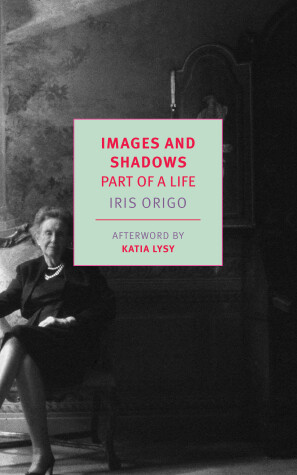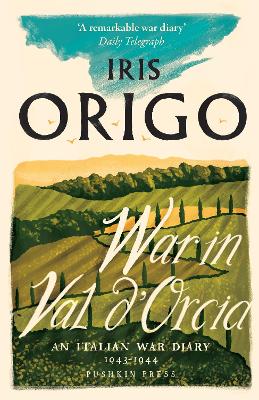Lives & Letters S.
2 total works
An extraordinary memoir by Iris Origo, who chronicled political life in A Chill in the Air and War in Val d'Orcia, and now turns inward to describe her own family, the work of writing, and the transcience of memory.
Images and Shadows, Iris Origo’s autobiographical account of her early life, is as perceptive and humane and beautifully written as her celebrated memoir War in Val d’Orcia. Origo’s father came from an old and moneyed American family, her mother was the daughter of an Irish peer, and Iris grew up in the most privileged of circumstances. Her father died of tuberculosis when he was only thirty, and her mother moved to Fiesole, Italy, where she and Iris developed a close friendship with the great connoisseur and art historian Bernard Berenson. Later, Origo and her Italian husband transformed a desolate and deforested Tuscan property into a flourishing estate, and it was there that she discovered her true calling as a writer. In Images and Shadows, Origo paints portraits of her shy, loving father and her headstrong mother, and describes beloved places, the books that formed her sensibility, and how she grew up and made her way in the world. She reflects on the pleasures and challenges of writing and evokes the persistence and fragility of memory. Images and Shadows is an autobiography that is as thoughtful as it is profoundly touching.
Images and Shadows, Iris Origo’s autobiographical account of her early life, is as perceptive and humane and beautifully written as her celebrated memoir War in Val d’Orcia. Origo’s father came from an old and moneyed American family, her mother was the daughter of an Irish peer, and Iris grew up in the most privileged of circumstances. Her father died of tuberculosis when he was only thirty, and her mother moved to Fiesole, Italy, where she and Iris developed a close friendship with the great connoisseur and art historian Bernard Berenson. Later, Origo and her Italian husband transformed a desolate and deforested Tuscan property into a flourishing estate, and it was there that she discovered her true calling as a writer. In Images and Shadows, Origo paints portraits of her shy, loving father and her headstrong mother, and describes beloved places, the books that formed her sensibility, and how she grew up and made her way in the world. She reflects on the pleasures and challenges of writing and evokes the persistence and fragility of memory. Images and Shadows is an autobiography that is as thoughtful as it is profoundly touching.
'It is quite impossible to attach importance to material possessions now. All that one still clings to is a few vital affections' Iris Origo, October 1943. Marchesa Iris Origo and her husband had been settled at their rural estate of La Foce since 1924. When the Second World War broke out Origo, an Englishwoman married to an Italian landowner, had divided loyalties. But as the war dragged on and the hostilities escalated, the small community of Val d'Orcia found themselves helping evacuees, orphans, refugees, prisoners of war and soldiers from both sides, concerned less with who was fighting whom than caring for those who needed their aid. Origo kept her diary throughout this time, when the risk of betrayal was a fact of life and the penalty for helping the enemy would result in death. Even with German troops occupying her manor house, she wrote at night about her valiant attempts to shelter refugees, burying her diary in the garden each morning. The result is a book which has become a classic, an affirmation in itself of courage and resistance, and an unsentimental, compelling story of the trials and tragedies of wartime.

